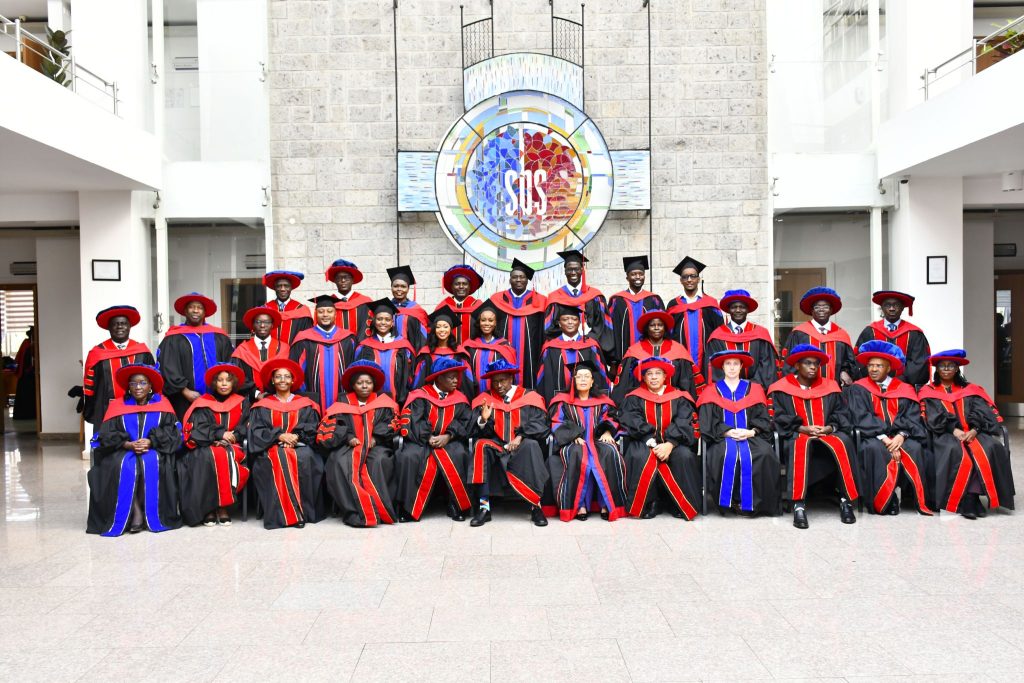By Ian Ortega
I always knew I had to go to Business School. It was one of those things you know are logged somewhere in your life plan. Now, it’s one thing knowing you must join business school, it’s another thing deciding on the business school.
One thing was certain; I wanted an African Business School experience. At the end of the day, I wanted to interact with African business case studies, appreciate the nuances of doing business in different African countries but also interact with those who were at the frontline, people who woke up everyday to shape the African business environment. Whether that be in public or private sector, the movers and shapers of industry, the managers that made the decisions, the entrepreneurs that had learned to bite their failures.
In making this decision, I also needed to acquire some cultural intelligence. That then put Uganda out of the options. That decision begun to look something like – a business school in Africa (excluding Uganda). That really left me three options – Strathmore Business School, Lagos Business School and the UCT Graduate School of Business in South Africa. The decision was now down to a regional contest on whether to go West, East, or South.
Long story short, East won. Did they not say wise men would come from the East? One day on an early morning in March 2023, I packed my bags and off I went to Strathmore Business School in Nairobi. I had signed myself up for the modular experience of their MBA.
What this meant is that you went in for two weeks of back-to-back every quarter. Those first two weeks were intense, I always wondered, what did I just sign up for? I could as well have continued with my life, why disrupt it?
By 7am, you are inside the business school, you’re having breakfast, while making sure you’ve gotten a good grounding of the case. You place yourself in the minds of these business leaders in the case study, sometimes you understand why they made a particular decision, sometimes you just can’t figure anything out.
And then you enter the lecture rooms, and you almost have massive disagreements, it’s debate, it’s discourse. You’re combatting intellectually. A student builds on an element in the case that you probably missed, or thought didn’t carry weight. And that then alters the whole direction of the discussion. You second-guess your earlier position. And the Faculty member is watching all these, orchestrating, probing. It’s not that settled. You follow through to the break sessions, and someone is saying; “look in my industry, this is how it works, this is how I would have made the decision.” Sometimes the emotions rise, and you bring them back. You could see first hand how business is dynamic, complex, how decisions are varied, how timing could alter options and choices. And then the frameworks, the league table of frameworks. CAGE? You know that one?
And how can I forget the syndicate groups that were a baptism in team formation. You are paired with these diverse people, and you must find a way to work together, to perform, prepare that presentation in time. I remember those late nights, searching for synthesis of the syndicate idea. And then preparing to make your presentation the next day. And when you think you have the best presentation, another syndicate group raises the bar even higher. It became an iron sharpens iron moment. It’s having over 100 years of experience all compressed in two years. Because everyone brought something to the class. And as I now say – if somebody explains the business school experience and you get it, then be sure they’ve not explained well. It can’t be narrated. It can only be lived.
There was never a dull day in business school. You just had to be prepared for something every day. And we still took off sometime to catch some nyama in Kilimani or Hurlingham, have a weekend in Nanyuki while still beating those CAT deadlines. And then the GNAM week, when you travel to another business school for a module. I remember my time in Makati, Philippines. You experience the best that Southeast Asia has got to offer. The French would say – Grande. The Hotdogs knew in their song – indeed no place like Manila.
And then came our module to IESE Business School in Barcelona. Falling in love with La Masia making that visit to Montserrat and seeing how business plays out on a Global context. We brag that we were the cohort that saw Lamine Yamal before the rest of the world caught on his fever. I could rattle on, but you look back, and smile at the memories you made, the lessons that just got embodied and the classmates that became lifetime friends. It was Pan-African in all ways.
Business school for me was a place for contemplation and deep reflection. It disabused me of many biases around business. In all these many business cases, you study tens that failed, tens that made it. And sometimes you would be in the middle of a case, and you learn that the business that was a classic is now no more. At the end of the day, I left saying – it’s down to the people. It will always come down to the people, and the value-system out of which they make the business decisions. And that what really matters is for people to have that clarity of the True North and build a culture that articulates this throughout the organization and then bringing all the other factors to life – innovation, strategy, operational efficiency, productivity, name it all.
And that moment when research calls, working through the defense season, and finally putting the last dot to the thesis, it’s when it hits you. That Strath has not left you the same. You’ve gone through a transformation, and you’re now a Stratizen. And that to whom much has been given, much is expected. It’s not just a degree anymore, it’s now a responsibility we carry. To spearhead Africa’s transformation, to trailblaze with wisdom, with excellence and with service to society.
Ut omnes unum sint. Mulembe!

